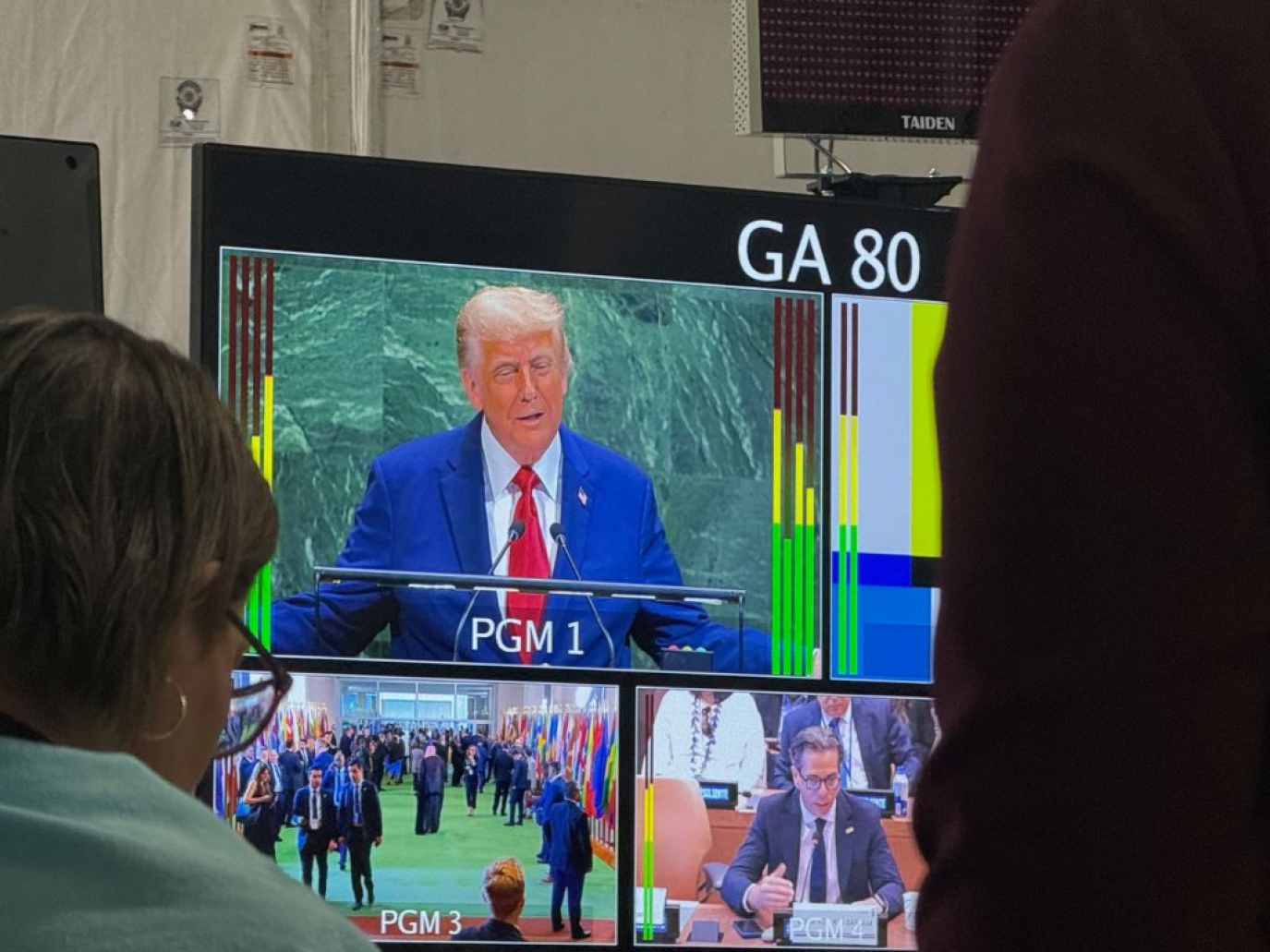A legend in his own mind, Donald Trump took to the podium at the UN General Assembly in New York to lambaste the United Nations as an organization, praise himself for all his economic and political moves of the past seven months, attack his predecessor as president, deny climate change, claim that “the high cost” of immigration and sustainable energy are “destroying much of the world,” and lament that “the Europe I love” seems particularly destined for disaster. Apparently, international peace and prosperity depend on returning to a world of fossil fuels and limited immigration in which states are sealed off from one another, except perhaps for hiding capital gains and avoiding taxes. Of course, there was no word about the latter two.
The rambling discourse followed incidents with a failed escalator and malfunctioning teleprompter that perhaps underpinned some of Trump’s obvious exasperation with the United Nations and everything it stands for in opposition to his self-professed nationalism. Unlike his appearance at the UN General Assembly in 2018 when many delegates erupted in laughter at his efforts at jocularity, this time the audience remained largely passive and quiet. Scheduled for 15 minutes he went on for about an hour. If this was hardly on a par with Fidel Castro’s one-time UN speech that was truly interminable, it will rank in infamy as one of the most unhinged and incoherent ever to have been performed in a forum infamous for its vacuous rhetoric.
Speaking to his base of supporters
On my hearing, Trump was not so much speaking to the assembled delegates as to his base of supporters in the United States (and elsewhere). The Golden Age envisaged for the United States is a retreat into the past with a strange utopia defined by a rigid siloing of the country behind tariff and migration walls, that would reproduce a more ethnically homogenous and culturally conservative country akin to that imagined from the 1890s through until the 1960s. Much of the speech’s content fits into the “culture war” rhetoric that Trump and his principal advisor on these matters, Stephen Miller, have brought to US electoral politics so effectively over the first Trump term - and much more aggressively since coming back into office this past January. Term 2 Trump was particularly leveraged in the speech against one-term Biden by talking about how “hot” America now is (sexually or economically?) and talking up how many wars he has stopped. He did at least acknowledge his failures on Ukraine and Gaza.
Key, though, to the overall meaning of the speech, to the extent that this can be found, was the doubt cast on international cooperation as represented by the UN. Multilateralism is not Trump’s métier. He prefers bilateral “deals” and Strongmen Meetings. Indeed, Trump seemed to blame the UN for “problems” such as migration and pushing his well-known claim that climate change is a “hoax,” that the UN has been a major sponsor of efforts at its amelioration. This emphasis has been lost in some of the media commentary that has focused on the meandering quality of the speech and the absurdity of many of his examples, such as complaining about windmills in Scotland (Trump’s NE Scottish golf course’s vista over the North Sea was “destroyed” in Trump’s view by such windmills) and that as a result countries that engage in sustainable energy practices “are going to hell”!
Buried in the past and at war with future
This is all par for a Trump campaign rally. Its presentation at the UN suggests simply how much Trump is buried in the past and at war with a future in which coal is in terminal decline, whatever he says, and solar and wind power are the major ongoing instruments of energy innovation. The blindness to climate change, notwithstanding all the local evidence from the United States in terms of trends in hurricane and fire prevalence and intensity, hints at a stubborn inability to see the world as it is rather than in terms of an ideology devoted to reproducing a past idealized world. In the face of this speech, the good news is that on climate change mitigation, America is more than Washington DC. Ironically, as the federal government retreats many of the states, particularly the larger and more influential ones like California, are taking the threat more seriously than previously. Trump himself has helped open this other door to change by encouraging a drift of powers away from the capital. The absurdities in his speech may well now encourage actors in the real world to look to other institutions, from states and provinces to cities, as well as, in a final blow, to the United Nations itself, notwithstanding all of its problems in organization and funding. Weirdly, this speech could be a turning point completely at odds with what Trump had in mind.



